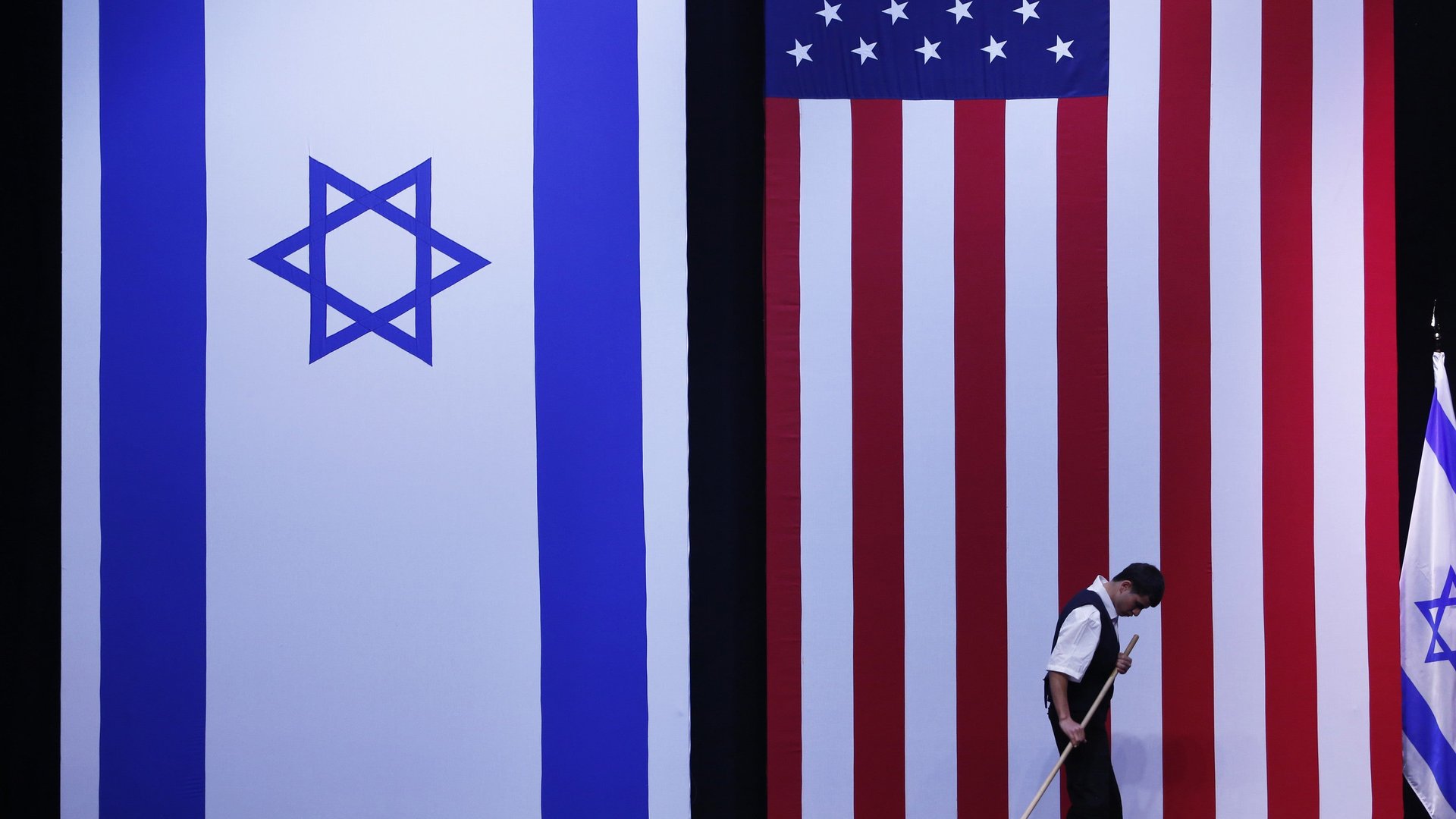American Zionists are censoring Jewish community theater
A Jewish community theater in Miami, Florida has canceled the performance of a play about Israel because it displeased some of its members.


A Jewish community theater in Miami, Florida has canceled the performance of a play about Israel because it displeased some of its members.
Crossing Jerusalem, a play by the British playwright Julia Pascal about an Israeli family during the second intifada in the early 2000s, was canceled halfway through its two-week run at the Michael-Ann Russell Jewish Community Center. Some locals had complained that the play was anti-Israel, and did not fairly depict the Israeli-Palestinian conflict.
Gary Bomzer, the president of the center, explained the decision in a letter to community members . “Please know that our intentions in presenting Crossing Jerusalem are good ones, and yet we realize we have unintentionally caused pain to many in the audience,” he wrote. “While we were aware that the play deals with some very controversial issues, the last thing we wanted was to alienate members of our community or damage relationships.”
The play’s supporters and production members were, needless to say, maddened. In her own letter, Pascal argued that modern Israeli theater is actually more critical of Israel than her play is.
“I am extremely surprised that a small group has succeeded in censoring my work,” she wrote. “It is amazing that in the USA—the country of freedom and free speech —a play by a renowned London Jewish author, with strong credentials and a long history of success, has been censored in this way.”
Adam Schwartzbaum, an actor in the play, called the decision a “heartbreaking capitulation to the forces of fear and ignorance” in a post on Facebook. “This act of cowardice exemplifies how a minority of extreme voices is dominating the Jewish Community and using bully tactics to manipulate the conversation about Israel and the situation in the Middle East,” he said.
The Guardian gave Crossing Jerusalem a mostly favorable review when it first hit the stage in London in 2003, saying, “It is true that the Palestinian case is presented largely from an Israeli perspective, but this is a play that, whatever its flaws, is driven by a sense of political and dramatic urgency.”
Despite Pascal’s pedigree, and the fact that the play is told from an Israeli perspective, some community members said they just couldn’t stomach it. “If this play was just about a dysfunctional Jewish family, which we know exist, there would not be an issue,” Ralph Avi Goldwasser, co-founder of the pro-Israel advocacy group the David Project, told the Sun-Sentinel. “The problem lies in the politics of the play.”
Pascal, meanwhile, maintained that her play is not politically biased. ”The intent of the play was to show the complexity of Israeli life,” she wrote. “It does not take sides. Rather it shows wrong and right on both sides and reveals a yearning for dialogue.”
It’s not the first time something like this has happened. In 2014, a Jewish punk rock band was invited to perform at a music festival in Washington, DC—and then swiftly uninvited after one of the band members made statements critical of Israel. Later that year, Ari Roth, the longtime artistic director of Theater J—a branch of the same DC Jewish community center—was fired after disagreements over the theater’s programming. Several prominent playwrights and theater groups signed a letter of outrage, arguing that Roth’s firing was an “act of politically motivated censorship.”
Of course community theaters should have autonomy over what they put on stage, and they shouldn’t be forced to endorse productions that would upset a majority of their supporters. That’s very different, though, from mounting a production and then bowing to outside pressures, and censoring a work of art in the middle of its run.
Even if Crossing Jerusalem is blatantly anti-Israel—which it doesn’t appear to be—censoring it does the exact opposite of what its detractors intend. Instead of silencing voices they disagree with, it creates a lot more publicity for a small production than it would have received otherwise. And it makes the censors look petty, weak, and desperate.